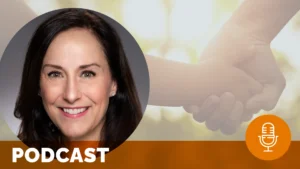Lonely No More: Bedside Visit Programs

Being in a hospital can be frightening, painful, and oftentimes overwhelming for patients. But those without family members or friends to visit them may face the extra burden of loneliness. Loneliness has consequences that may be detrimental to a patient’s emotional, physical, and spiritual well-being which can negatively impact recovery time. Join this webinar to learn how two organizations, UChicago Medicine and Kaiser Permanente Los Angeles, have utilized bedside visit programs to improve the patient experience.
Erica Luciano, Program Manager, Volunteer Services, UChicago Medicine
Kathleen McIntire, CAVS | Director, Volunteer Services | Kaiser Permanente Los Angeles
Non-members can purchase webinars at a cost of $49 each.
Related content
-
 Environment & Hospitality | Patient Family & Community Engagement
Environment & Hospitality | Patient Family & Community EngagementElevating the Emergency Department Experience: The Impact of Experience Ambassadors
By Jill Koss, Cook Children’s Medical Center At Cook Children’s Medical Center, we are committed to continuous innovation to enhance the patient and family experience. One key area of focus has been our Emergency Department (ED), where we identified an opportunity to improve the experience of waiting—both in the waiting area and after patients are placed
Learn more -
 Patient Family & Community Engagement
Patient Family & Community EngagementPX Chat on PFA/PFACS: Sustaining/Growing (June 4, 2025)
12pm ET / 11am CT / 10am MT / 9am PT – Join The Beryl Institute community for an opportunity to connect with your peers on the support and resources needed to address efforts around sustaining and growing PFAs and PFACs in their organizations. Breakout discussion groups allow you to share your challenges, celebrate your
Learn more -
 Patient Family & Community Engagement
Patient Family & Community EngagementElevating Pediatric PX: Culture, Champions & the Power of Parent Advisors Episode Summary
This episode explores the evolution of a pediatric Patient Experience. Dive into core values, shared ownership, and practical strategies for building trust, driving change, and creating meaningful experiences for children, families, and staff.
Learn more
